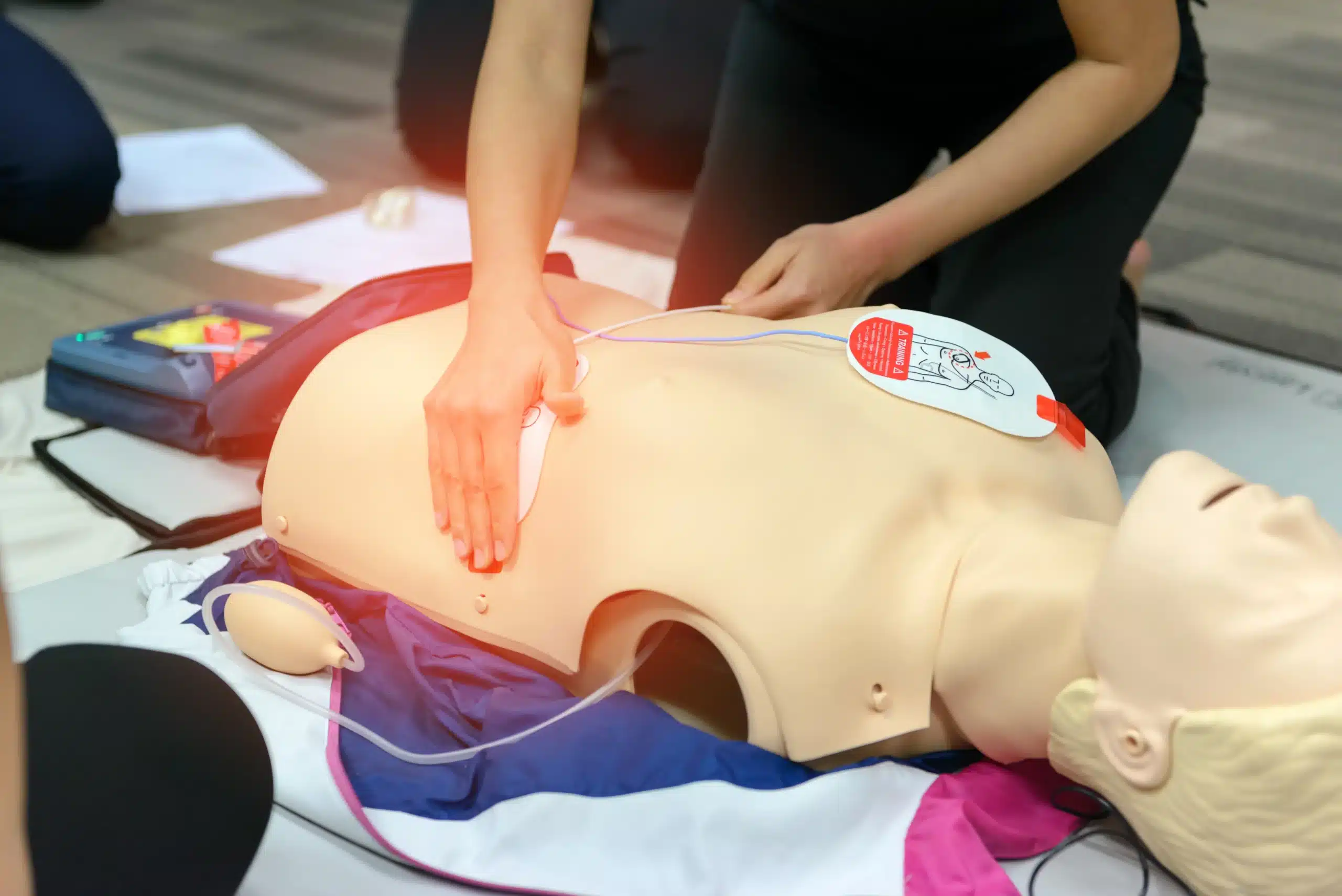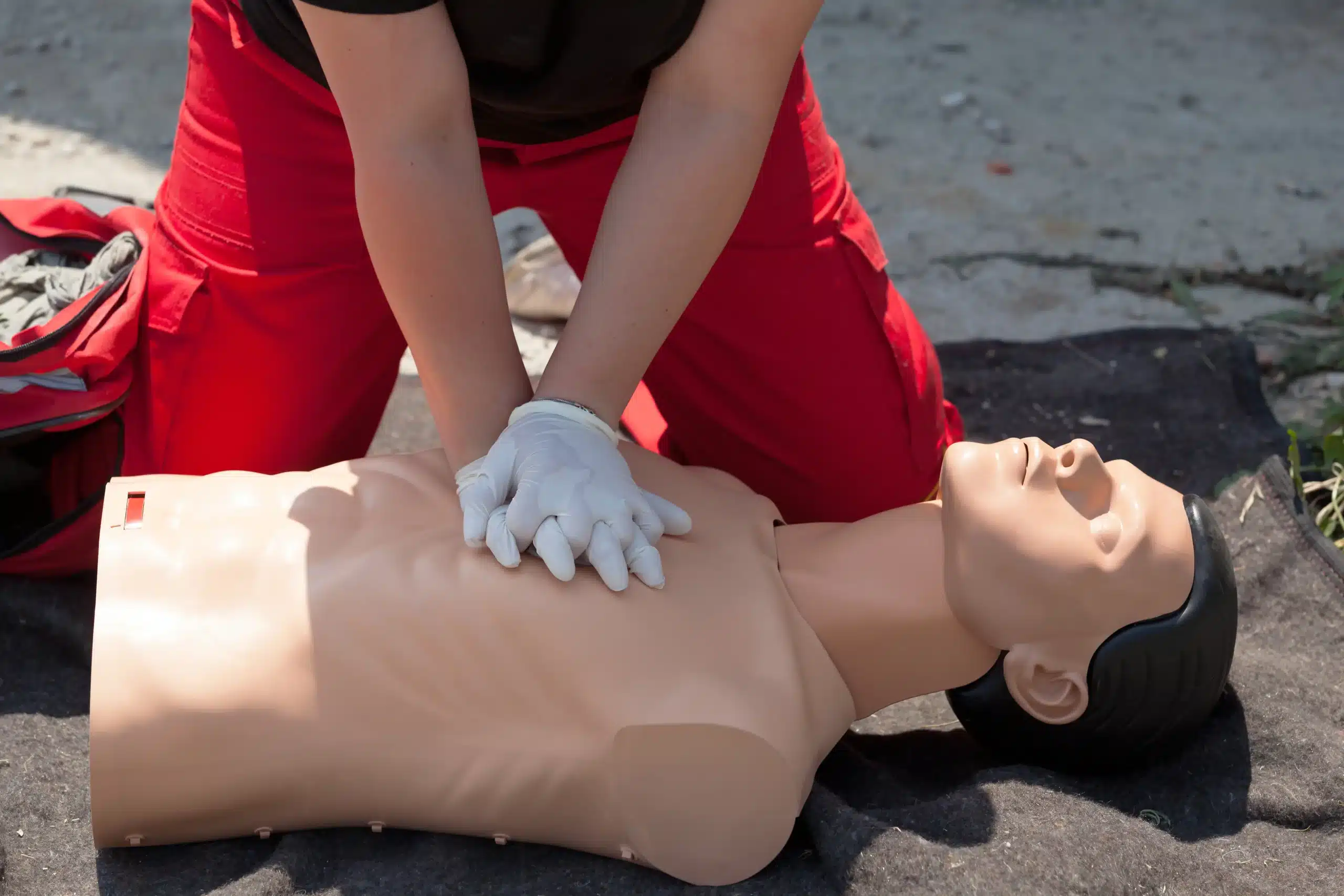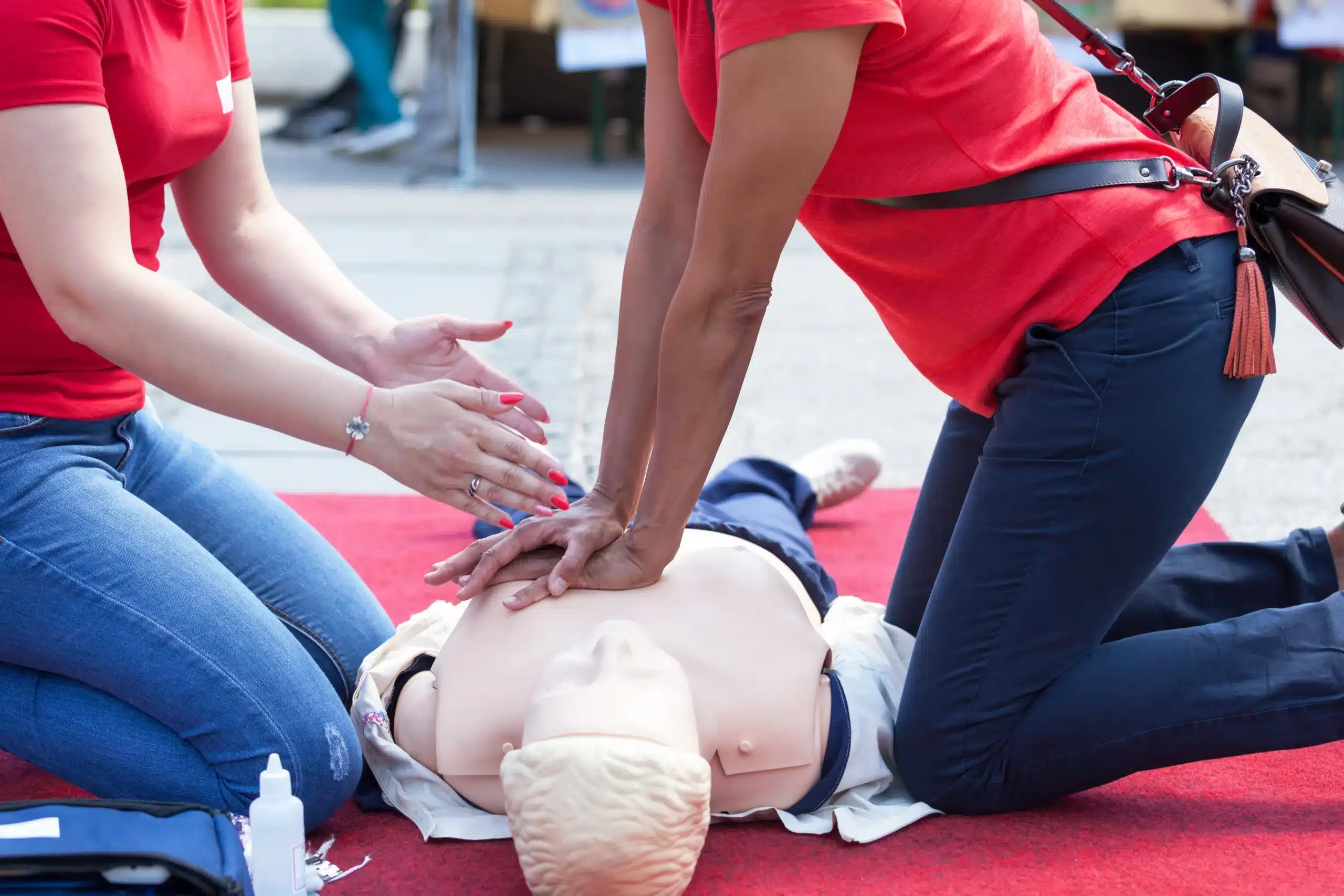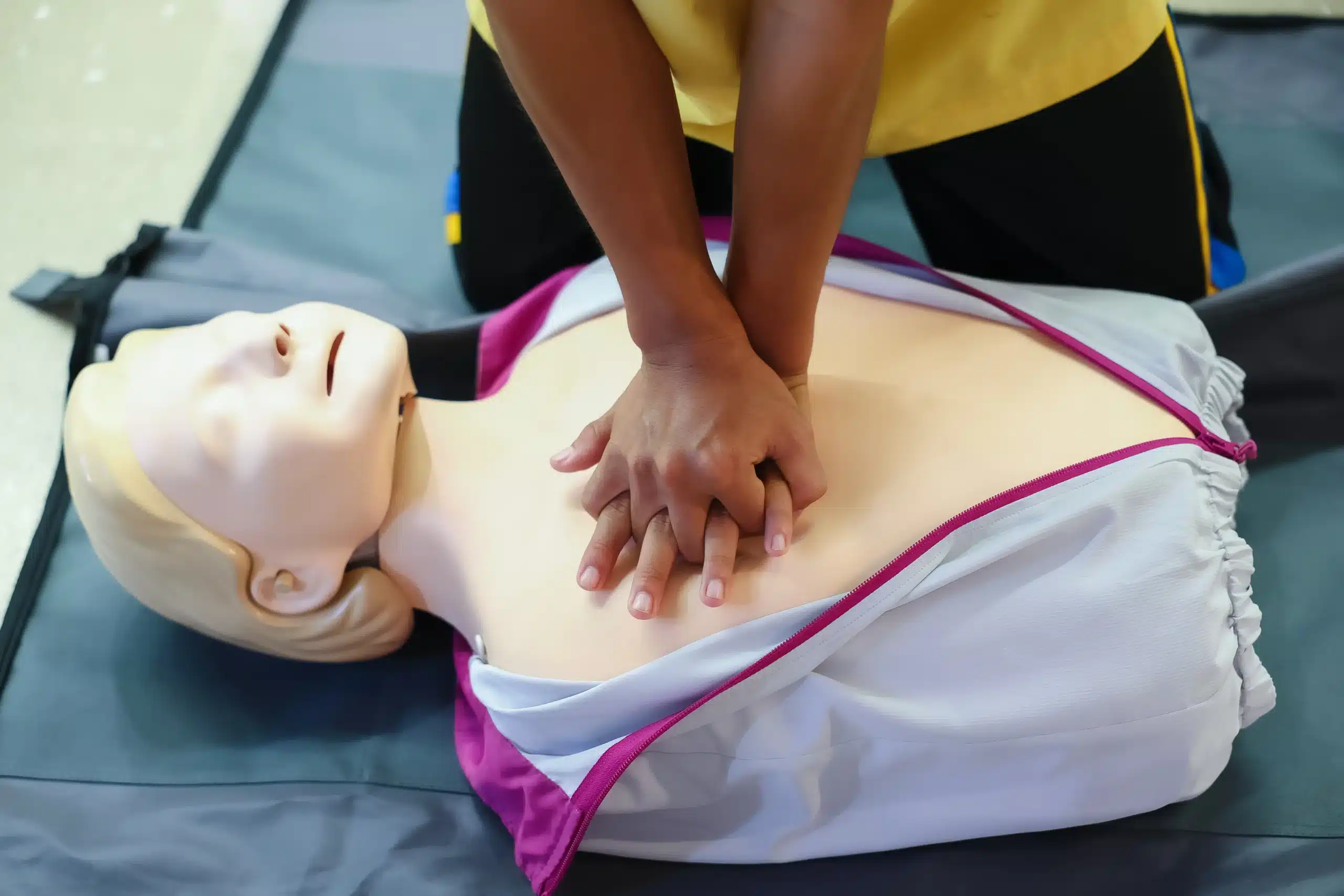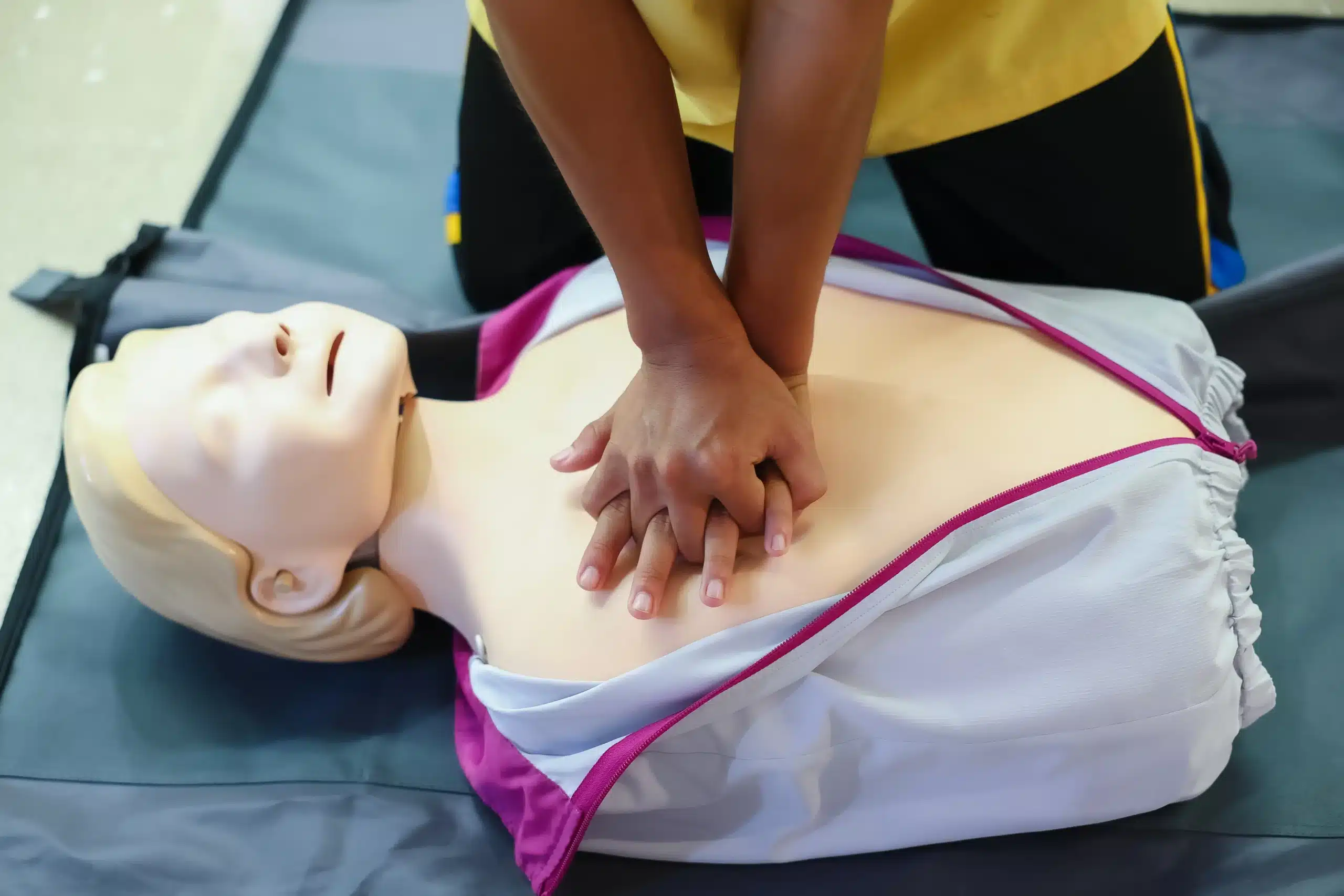As a healthcare provider, your skills need to be as sharp as your stethoscope. Pediatric Advanced Life Support (PALS) is essential, but maintaining those skills can be tough with a packed schedule. RQI PALS offers a smarter approach to keeping your skills fresh. If you’ve been searching for “RQI PALS Classes near me,” you’re likely looking for a flexible, effective way to stay on top of your PALS certification. This guide covers everything you need to know about RQI PALS, from its unique features and benefits to how it compares with traditional PALS courses. We’ll also help you find training options that fit your busy life.
Key Takeaways
- RQI PALS complements your initial PALS training with ongoing practice: The blended learning format, featuring online modules and hands-on skills sessions, makes it easier to refresh your knowledge and maintain your skills.
- RQI PALS offers flexible learning options to fit your busy schedule: Shorter, more frequent sessions and self-paced online modules allow you to learn and practice when it’s most convenient for you.
- RQI PALS focuses on improving patient outcomes through better skill retention: Regular practice with real-time feedback helps you maintain proficiency in essential life-saving techniques, leading to increased confidence and better performance in emergencies.
What is RQI PALS?
RQI PALS (Resuscitation Quality Improvement Pediatric Advanced Life Support) is a training program created by the American Heart Association. Unlike traditional PALS courses, RQI PALS focuses on regularly practicing CPR skills. This approach ensures healthcare providers are always ready to respond to emergencies. The program emphasizes hands-on practice and feedback, so providers build confidence and improve their skills over time. Learn more on the AHA’s RQI program overview page.
Key RQI PALS Features
The RQI PALS program uses several learning tools to help healthcare professionals master essential skills. It combines online learning, hands-on practice, and simulated patient cases. This blended learning approach lets participants experience realistic scenarios, improving their preparedness for real-life emergencies. Regular practice at an RQI simulation station, typically every three months, provides real-time feedback on compression and ventilation techniques. This consistent reinforcement helps providers maintain and improve their skills, ensuring they’re always ready for critical situations. This research article offers more details about maintaining CPR skills through RQI.
RQI PALS vs. Traditional PALS
RQI PALS isn’t a replacement for traditional PALS training—think of it as the next step. Traditional PALS courses give you the foundational knowledge, while RQI helps you keep those skills sharp. This ongoing training is more flexible and accessible than traditional courses, making it easier to fit into busy schedules. Ultimately, RQI PALS complements your initial PALS training, leading to better patient outcomes and increased confidence in high-pressure situations. This guide to RQI training explains how RQI enhances traditional training. This article compares RQI with traditional instructor-led events.
Find RQI PALS Classes Near You
So, you’re ready to pursue your RQI PALS certification—great! Now, let’s find a course that fits your schedule and learning style. Here’s how to locate RQI PALS classes near you:
Search Online
Start your search online. RQI Partners, an organization affiliated with the American Heart Association, offers a wealth of resources. Their website is a great starting point for finding online and hands-on HeartCode PALS training. This blended learning approach combines online modules with in-person skills practice. You can work through the self-paced online portion, then schedule a hands-on session at your convenience.
Check Local Healthcare Facilities
Many hospitals and healthcare systems use the RQI Skills Station for quarterly skills assessments. Check with facilities in your area—they may offer RQI PALS courses or direct you to nearby training centers. The benefit of this approach is convenience. RQI’s flexible program features shorter, more frequent sessions to accommodate busy healthcare professionals. Ask your employer if they offer on-site RQI training, which often simplifies maintaining your certification.
Locate RQI Training Centers
Finally, consider dedicated RQI training centers like Safety Training Seminars. These centers specialize in providing RQI courses, often with various schedules and locations. They can also answer any questions you have about the RQI PALS certification process.
RQI PALS Training: Structure and Content
RQI PALS training blends online learning with hands-on practice, letting you learn at your own speed and then test your skills. Let’s look at the key components:
Online Modules and Self-Paced Learning
One of the best parts of the RQI PALS program is its flexibility. Instead of one long day of training, the program unfolds over two years. You’ll work through online modules at your own pace, fitting them into your schedule. This approach helps you absorb and retain information more effectively. Deadlines for module completion keep you on track and help maintain your certification. Learn more about the RQI program structure from Guthrie’s RQI FAQ.
Hands-on Skills Sessions & Real-Time Feedback
Online learning is excellent for understanding the “why,” but PALS also demands practical “how-to” skills. RQI PALS addresses this with hands-on skills sessions using the RQI Simulation Station. The station gives you immediate audio and visual feedback as you practice, which helps you refine your technique and build confidence. The American Heart Association’s RQI Program Overview offers more details on this innovative approach.
Core Curriculum & Latest AHA Guidelines
The RQI PALS program isn’t just convenient—it’s also thorough. It covers the core PALS curriculum and follows the latest American Heart Association guidelines, so you’re always learning the most effective resuscitation techniques. The program’s focus on quality improvement means you’re not just learning PALS—you’re mastering it. See the AHA’s RQI Program Overview for more details about the curriculum.
RQI PALS Class Costs
RQI PALS classes generally cost less than traditional PALS courses. This is largely due to the efficiency of the RQI model, which reduces overhead and instructor time. While traditional PALS courses often involve full-day sessions, RQI PALS utilizes shorter, more frequent skills sessions combined with online learning. This blended approach allows for more flexible scheduling and often translates to lower overall costs. Remember that prices can vary based on location and training center. It’s always best to check with your chosen provider for the most up-to-date pricing. For example, you can find our course prices listed on the Safety Training Seminars website.
Average Prices
To give you a general idea, basic life support (BLS) certification can cost around $109, while advanced cardiovascular life support (ACLS) is often priced around $149. A combined CPR/AED/First Aid course may be around $59. Keep in mind that these are average prices and can differ depending on your location and the specific training center. “For Life” courses, which typically include ongoing training and renewal, are understandably more expensive. For instance, an ACLS “For Life” course could cost around $599. You can find more information on certification pricing from various providers.
Discounts and Promotions
Many training centers offer discounts for group registrations, students, or returning customers. It’s always a good idea to inquire about potential discounts when you contact a training center. Some centers also run periodic promotions, so checking their websites or social media pages can help you find the best deals. Safety Training Seminars offers a low price guarantee, ensuring you receive competitive pricing.
RQI vs. Traditional PALS: Cost Comparison
One of the key advantages of RQI PALS is its cost-effectiveness compared to traditional PALS courses. The flexible, blended learning format of RQI, with shorter, more frequent sessions, often results in lower overall costs. This is because the RQI model reduces the need for extensive classroom time and instructor resources. Additionally, the online component of RQI allows students to learn at their own pace, reducing the need for potentially costly repeat training. You can learn more about the benefits of RQI certification in our San Francisco guide.
Benefits of RQI PALS
RQI PALS offers several advantages over traditional PALS certification, making it a practical and effective choice for healthcare providers. Let’s explore some key benefits:
Better Skill Retention
Traditional PALS courses often involve lengthy, infrequent training sessions. This format can lead to skill decay over time. RQI PALS addresses this by using shorter, more frequent practice sessions at simulation stations. These sessions provide real-time feedback, reinforcing proper techniques and helping healthcare professionals maintain their skills. This approach significantly improves long-term skill retention, ensuring providers are always ready to respond effectively in emergencies. One study found that participants maintained and even improved their compression and ventilation skills over six months, thanks to the regular practice and feedback.
Flexible Learning
RQI PALS recognizes the demanding schedules of healthcare professionals. The program offers flexible learning options, including online modules and self-paced learning. This allows providers to fit training into their busy schedules without disrupting their workflow. Shorter, more frequent sessions make it easier to integrate training into daily routines, leading to better skill retention compared to traditional, longer courses. This article on RQI training details the flexible learning options available.
Improved Patient Outcomes
The goal of any resuscitation training is to improve patient outcomes. RQI PALS contributes to this goal by ensuring healthcare providers maintain high levels of proficiency in critical life-saving skills. Regular practice and real-time feedback build confidence and competence, leading to better performance in real-world emergencies. Research shows a correlation between RQI training and improved patient outcomes. Another study highlighted RQI’s positive impact on chest compression rates during out-of-hospital cardiac arrests. By equipping healthcare providers with the skills and confidence they need, RQI PALS plays a vital role in enhancing patient care and saving lives.
The RQI PALS Experience
RQI PALS takes traditional PALS training to the next level with a dynamic and engaging approach. It combines online learning with hands-on practice and emphasizes continuous improvement, building confidence and proficiency in pediatric advanced life support.
Continuous Learning
Instead of lengthy, infrequent sessions, RQI PALS uses a “little and often” method. Shorter, more frequent practice sessions fit into busy schedules and improve long-term skill retention. This consistent reinforcement helps providers maintain their skills and preparedness for emergencies.
Simulated Cases & Practical Application
RQI PALS moves beyond basic knowledge and skill demonstration. The program includes simulated patient cases, allowing providers to apply their knowledge in realistic scenarios. This practical application connects theory and practice, building critical thinking skills and improving decision-making under pressure. You’ll work through cognitive components, practice essential psychomotor skills, and manage simulated cases to strengthen your understanding.
Real-Time Feedback & Performance Tracking
A key benefit of RQI PALS is the real-time feedback during skills practice. Using advanced simulation technology, providers receive immediate feedback on their performance, helping them identify areas for improvement and refine their technique. This personalized coaching and performance tracking helps providers achieve mastery and maintain high-level skills. Studies show that regular practice with real-time feedback significantly improves CPR skills and increases confidence in critical situations.
Maintain Your RQI PALS Certification
Keeping your RQI PALS certification current is easier than you might think, thanks to the program’s flexible structure. Instead of one high-stakes renewal test, RQI PALS uses low-dose, high-frequency training to help you maintain your skills.
Renewal Process
RQI PALS certification renewal revolves around regular skills assessments at an RQI Skills Station. These stations are typically located right on your unit, making it convenient to pop in for a quick refresher. You’ll use a manikin and receive real-time feedback, ensuring you’re always ready for a real-life emergency. Think of it like a gym workout for your PALS skills! This approach, where quarterly assessments at the Skills Station are completed, allows participants to maintain their course completion cards. For more information, check out Guthrie’s RQI FAQ.
Continuing Education
Continuing education is built right into the RQI PALS program. Through ongoing low-dose, high-frequency sessions, you’ll not only refresh your skills but also earn your RQI eCredential, which verifies your competency in high-quality CPR. Learn more about the eCredential and other program details in these helpful RQI FAQs. Regular practice at the RQI simulation station, about every three months, with real-time feedback, helps maintain and even improve compression and ventilation skills, according to a study on the maintenance of CPR skills. This consistent reinforcement builds confidence and ensures you can handle emergency situations effectively.
Choose the Right RQI PALS Program
Choosing the right RQI PALS program is crucial for a positive and effective learning experience. Here’s what to consider when making your decision:
Factors to Consider
When selecting an RQI PALS program, think about the flexibility and structure of the training. RQI offers flexible CPR training. The blended learning format and shorter, more frequent sessions accommodate busy schedules and improve long-term skill retention. This adaptability is essential for healthcare professionals juggling demanding work schedules. Consider your learning style and preferences. Do you thrive in a self-paced environment or prefer more structured, in-person instruction? Also, consider the location and accessibility of the training center. Choose a program that fits comfortably into your routine. Safety Training Seminars offers convenient RQI classes in San Jose, making it easier to fit this crucial training into your schedule.
Questions to Ask
Before enrolling, ask specific questions to ensure the program aligns with your needs. You might have questions about various aspects of RQI. Whether you’re a healthcare professional maintaining your CPR certification or an organization implementing a resuscitation training program, understanding the details is key. Inquire about the program’s structure, costs, certification outcomes, and any continuing education opportunities. Don’t hesitate to ask about the instructors’ experience and the program’s success rate. Our team at Safety Training Seminars is always happy to answer your questions and guide you through the process. Check out our Low Price Guarantee for more information on our commitment to affordable training. We also offer other valuable courses like our AHA-certified BLS training.
RQI PALS Providers
Several reputable organizations offer RQI PALS training:
American Heart Association
The American Heart Association (AHA) is a leading provider of RQI PALS training. The Resuscitation Quality Improvement (RQI)® Program, developed by the AHA, delivers quarterly training to support mastery of high-quality CPR skills. This program ensures healthcare providers maintain their skills effectively.
RQI Partners
RQI Partners offers comprehensive training options, including online and hands-on AHA HeartCode training (BLS, ACLS, and PALS) for healthcare professionals. This blended learning approach combines flexible eLearning with in-person skills practice for a more personalized experience.
Local Healthcare Systems
Many local hospitals and medical centers offer RQI training programs, often using RQI to train their staff and maintain top-tier CPR skills among healthcare providers. This can be a convenient option for those already working within a healthcare system.
Safety Training Seminars
Safety Training Seminars offers accessible RQI classes, providing a quick and popular route to this crucial certification. We’re committed to providing high-quality training at an affordable price. We also offer EMSA Health, Safety, and Lead Poisoning training for California childcare providers. Our BLS courses are conveniently located in San Jose, specifically the Willow Glen area.
Who Should Take RQI PALS?
Target Healthcare Professionals
RQI PALS (Resuscitation Quality Improvement Pediatric Advanced Life Support) is designed for healthcare providers who regularly work with pediatric patients, especially in emergency or critical care settings. This includes nurses, paramedics, respiratory therapists, physicians, and other professionals who need to be highly skilled in pediatric advanced life support. Because RQI offers flexible training, it fits the busy schedules of these professionals and reinforces essential skills for better long-term retention. The convenient placement of RQI stations within healthcare facilities also minimizes disruption to daily work, making it easier to stay current with certifications.
Prerequisites
Before you register for RQI PALS, you’ll need a current Basic Life Support (BLS) certification and a background in pediatric care. It’s also recommended that your current AHA course completion card have at least six months of validity remaining. You might also be assigned some prep work, such as online modules and simulations, to build a solid foundation before officially starting the RQI PALS program. This ensures everyone begins with the necessary baseline knowledge. Check the RQI PALS Program Information Sheet for further details.
Prepare for Your RQI PALS Class
Getting ready for your RQI PALS class involves a bit of prep work. Knowing what to expect and how to prepare can make your learning experience smoother and more effective. Here’s a breakdown of how to get ready:
Required Materials & Tech
Before you begin, ensure you have the necessary materials. You’ll need a current Basic Life Support (BLS) certification, so double-check that yours is up-to-date. RQI PALS often involves online modules and simulations, so a reliable computer or tablet with a stable internet connection is essential. Check with your chosen RQI training center to confirm any specific technical requirements. Some programs may use specific software or require certain browser versions. You’ll also want to familiarize yourself with the RQI PALS program details and confirm your eligibility.
Pre-Course Expectations & Study Tips
Most RQI PALS courses recommend pre-course work. This might include reviewing the PALS Provider Manual and completing a self-assessment. Take the time to review these materials; they’ll give you a foundation for the concepts covered in the course. Consider setting aside dedicated study time each day leading up to your class. Shorter, more frequent study sessions can be more effective than cramming. Hands-on practice is key to mastering CPR skills. If your program includes access to an RQI simulation station, take advantage of it! Regular practice with real-time feedback, like that provided by RQI, can significantly improve your skills and boost your confidence. Learn more about the benefits of regular practice with RQI simulation stations.
Overcome Common Challenges
One common hurdle for healthcare providers is balancing busy schedules with training requirements. RQI PALS programs are designed with this in mind, offering shorter, more frequent sessions that can fit more easily into your workday. If you’re concerned about fitting training into your schedule, explore the flexible learning options available through RQI. Remember, investing in your RQI PALS certification is an investment in your career and the safety of your patients. Prioritize the time for training and explore resources that can help you manage the demands of your schedule.
Related Articles
- RQI in San Jose: The Complete Guide to Certification – San Jose CPR Classes
- Pediatric Advanced Life Support (PALS) in San Jose – San Jose CPR Classes
- Online PALS Classes in San Jose: Your Complete Guide – San Jose CPR Classes
- PALS HeartCode San Jose: Your Certification Guide – San Jose CPR Classes
- RQI Classes in San Jose, CA – San Jose CPR Classes
Frequently Asked Questions
How is RQI PALS different from traditional PALS? RQI PALS complements your initial PALS training by focusing on consistent practice and skill maintenance. It uses shorter, more frequent sessions and real-time feedback to reinforce your knowledge and skills, unlike the longer, less frequent training of traditional PALS. It’s not a replacement, but rather a valuable addition to your existing certification.
What are the main components of RQI PALS training? RQI PALS training blends online learning modules with hands-on skills sessions at an RQI Simulation Station. The online modules offer flexibility and self-paced learning, while the simulation sessions provide real-time feedback on your performance, helping you refine your technique and build confidence.
How much does RQI PALS training cost? RQI PALS training is often more affordable than traditional PALS courses due to its efficient blended learning model. The cost varies depending on the training center and location, so it’s best to contact providers directly for specific pricing. Many centers offer discounts for groups, students, or returning customers.
Who should consider taking RQI PALS? Healthcare professionals who regularly work with pediatric patients, particularly in emergency or critical care settings, benefit most from RQI PALS. This includes nurses, paramedics, respiratory therapists, physicians, and others who need to maintain high proficiency in pediatric advanced life support techniques.
How do I maintain my RQI PALS certification? Maintaining your RQI PALS certification involves regular skills assessments at an RQI Skills Station, typically every three months. These short, frequent sessions provide ongoing practice and feedback, ensuring your skills stay sharp and your certification remains current. This approach replaces the traditional high-stakes renewal testing with a more continuous, low-stress method of skill maintenance.


